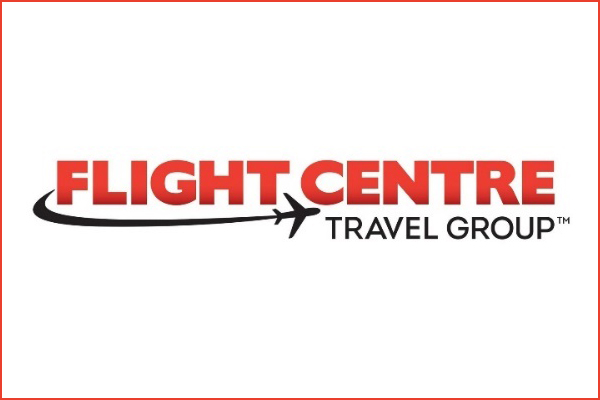Flight Centre Travel Group Releases First Half Results

The Flight Centre Travel Group (FLT) continues to respond to the challenges posed by COVID-19 and the unprecedented travel restrictions that are in place to slow its spread.
In releasing its 2021 fiscal year (FY21) first half (1H) accounts, FLT said today that while global trading conditions remained volatile, results had gradually improved thanks to targeted cost base reductions and revenue increases during the period.
These revenue increases have been achieved despite:
- International travel, the company’s leisure businesses’ core product, effectively being grounded for the past 12 months; and
- Heightened restrictions and lockdowns globally during the 1H to counter second and third waves, creating additional customer uncertainty and curbing domestic travel.
Cost reduction strategies have been outlined previously and were generally introduced during FY20, as part of FLT’s initial response to the COVID-19 crisis.
Since the crisis escalated in March 2020, the company has now:
- Lowered its cost base by 66% (representing a $1.9billion annualized saving) without jeopardizing either its investment in key growth drivers or its ability to rebound quickly when conditions improve
- Continued to generate total transaction value (TTV) and revenue in a pre-vaccination, domestic-only travel world – December revenue was at its highest point since travel restrictions were introduced globally in March 2020
- Delivered month-on-month reductions in net operating cash outflow during the 1H; and
- Maintained a $1.2billion liquidity runway to help it withstand an extended downturn or capitalise on opportunities during the recovery phase, which could now be fast-tracked with the world’s largest ever vaccination program underway.
FLT managing director Graham Turner said: “The conditions we have encountered since March last year have undoubtedly posed the greatest challenge that our industry and many others have faced.”
Turner continued: “Rather than enter a holding pattern ahead of future domestic and international border re-openings, we are taking steps to ensure we are well placed for the eventual recovery.”
And he added: “We have become a leaner and more efficient business with a long liquidity runway, which has been crucial during this challenging and uncertain period. 1H liquidity was bolstered through FLT’s Melbourne office sale, a debt restructure and the $400million convertible note issue. With an eye to the future, we have balanced the short-term need to reduce costs in a low revenue environment with the long-term need to invest in and enhance key assets. In this regard, we have maintained capital expenditure on key leisure and corporate technology projects at pre-COVID levels and have now started to deploy a number of important new products for our customers and our people.”
Said Turner: “In both the leisure and corporate sectors, we have continued to invest in new and legacy models and have proactively delivered innovative tech-backed-by-people solutions to customers of these legacy businesses, as evidenced by both Helio and Melon. While we are in the early stages of recovery, we are starting to see some promising signs.”
But in announcing its results, Flight Centre said that given that the timeframe for recovery is largely dependent on government policies and the vaccination programs’ success, FLT is not able to provide FY21 guidance.
Sales slowed in January 2021 after further domestic border lockdowns in Australia and tighter global travel restrictions were applied. The company is, however, seeing a number of positive indicators and is well placed for the recovery phase given its:
- Investment in proven growth drivers and successful deployment of key global strategies, including Grow to Win in corporate and ongoing leisure transformation
- Financial strength and stability, underlined by an extended liquidity runway at a time when market consolidation is inevitable
- Significantly lower cost base, which will allow it to breakeven with a lower proportion of its normal sales volume
- Brand and geographic diversity, highlighted by large scale operations in both leisure and corporate travel and in countries that are reaching an advanced point in their vaccination programs
- Significant leverage to domestic and short-haul regional travel, which partially offsets the ongoing but temporary loss of international travel; and
- Secure long-term relationships with suppliers – multi-year agreements are in place with a number of partners and attractive global deals are also being locked in.
Turner noted that: “Within our businesses globally, we have invested in key growth drivers and controlled the business-critical factors that should pave the way for a return to profitability.”
He noted that: “Based on what we have seen so far, travellers have been keen to take off as soon as they have been allowed to do so, which should ultimately lead to a very solid rebound. Assuming vaccination programs continue to prove successful against the virus and any variants, we expect travel restrictions will ease over the next few months given that high risk and vulnerable people, who are being prioritized in most programs, will be protected. This should allow domestic travel restrictions to be removed permanently and international travel to return in some countries later this year, probably via low risk corridors initially for those who have been vaccinated and have the appropriate health passports, which we believe will be mandatory and is an area that we have proactively expanded into. Significant progress has been made in most of our key countries. Vaccinations are now being administered in Australia and the Federal Government has indicated the population could be vaccinated well before the end of this calendar year. The UK and USA are both making very strong progress – more people have now been vaccinated in the USA than have tested positive to the virus (Source: Bloomberg) – and infection rates are falling.”
FLT is targeting a return to breakeven in both leisure and corporate travel during the 2021 calendar year on the basis that domestic borders are likely to open permanently and some (low risk) international travel may be permitted.


